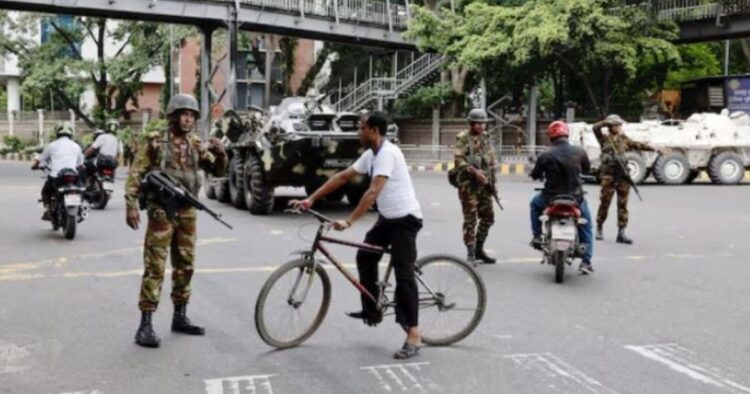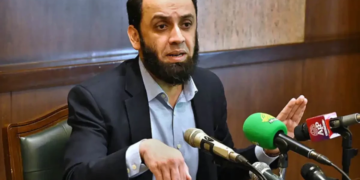On Monday, Bangladesh experienced relative calm despite a curfew in place across the nation. However, significant disruptions to telecommunications persisted after a recent Supreme Court decision. The court ruled against some controversial job quotas, leading to continued protests from students and other groups who have set a 48-hour deadline for the government to address their demands.
The unrest began when the Supreme Court last month reinstated job quotas that had been removed by Prime Minister Sheikh Hasina’s government in 2018. The decision has led to violent clashes between student protesters and security forces, resulting in the deaths of at least 147 people. The court’s recent order requires that 93% of government jobs be based on merit rather than quotas that previously included 56% for groups such as families of freedom fighters, women, and people from underdeveloped regions.
Student protesters are calling for the government to officially publish the court’s verdict in the gazette, an official record of decisions. They are also demanding the release of detained protest leaders, the lifting of the curfew, and the reopening of universities that have been closed since Wednesday. The students have given the government 48 hours to meet these demands, though it remains unclear what will happen if their requests are not met.
On Monday, there were no new reports of violence or protests. The media reported that the curfew would be relaxed for three hours in the afternoon, an increase from the two-hour relaxation the previous day, allowing people to buy essential goods. Army tanks were visible in various parts of Dhaka, the capital and armed security patrols were directing the few motorists who were out.
Many department stores are running low on supplies due to disruptions caused by the curfew. The suspension of internet services has also created problems for travel and essential services. For instance, migrant workers had to visit airline offices in person to collect tickets, and others had to go to a power distribution company to pay electricity bills due to the internet outage.
ALSO READ: “4,500 Indian Students Return To India As Bangladeshi Angry Over Quota Protests”
The southern port city of Chittagong has also been affected by the internet disruption, leading to tighter security measures on Monday. The internet issues have impacted port operations and other activities in the region.
The unrest is partly attributed to stagnant job growth in the private sector and high youth unemployment, which has made government jobs, with their regular wage increases and other benefits, more attractive. Prime Minister Sheikh Hasina, who began her fourth consecutive term this year, has faced accusations of authoritarianism, human rights violations, and crackdowns on free speech and dissent. Her government denies these allegations.
As the situation evolves, the government’s response to the protesters’ demands will be closely watched, and the outcome of these developments remains uncertain.

















Comments